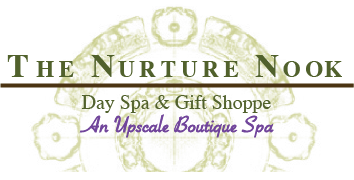Think Less. Feel More.

Have you ever gotten so lost in thinking about something that you found yourself in a mental whirlwind where you couldn’t seem to catch one solid thought for all the swirling?
That’s when you know you are caught in your head and have become disconnected from your heart and what you feel. Logic and reasoning have their place. It is important to look at the facts and see how they align with a situation or decision you have to make. Oftentimes you can stack logic and reason next to your heart, and many times your heart will make the final decision.
Take buying a house, for instance. Usually you have a budget that you have to stay within, so that’s going to be logical. Reasoning might come into play on decisions like where the house should be located, whether near a school, or close to work or family. Then you might see a house that isn’t exactly within these thinking points, but you just feel like it’s where you belong. It’s important to listen to your body wisdom and trust your feelings or instincts, even when the logic doesn’t stack up. I’m not saying always, but I am suggesting that you pay close attention to how you feel in any given situation.
I had a friend betray a trust once. I was devastated by this unexpected behavior. I thought over and over about why they would do this, what was the reason behind it, why didn’t I matter more, and so on. I was lost in the whirlwind of thoughts and could not land on one that wasn’t mixed with emotion, anger, disappointment or some form of suffering. Through all of the “thinking,” I was also missing my friend. We’d been friends for many years and, despite this poor judgement, I knew my love of our relationship outweighed any perceived betrayal. After speaking with another friend and lamenting over the anger and reasons to never talk to my friend again, I realized that if I removed all of the “thinking” and the anger, all that was left was genuine love and compassion for my friend. They knew they were wrong, and regretted the action. It was enough for me to listen to my deep instincts and know that to forgive and love was the choice that felt better, that felt right. It took a little gentle time, but our friendship was restored and strengthened.
“Get out of your head, and into your heart. Think less, feel more.” — Osho
Sometimes feeling more can also be saving you from unwanted trouble. I remember walking through a parking lot of a large retailer around 10 p.m. when someone came out from between two cars and asked for a handout. I am all for helping folks in need, but I am not okay with this type of approach. I told this person that perhaps they should go inside or go to a local agency to ask for assistance rather than stopping strangers late at night in the middle of a parking lot. I was only asking them to reconsider their approach for this kind of need. In this situation it was my feeling that led me to consider the reasoning behind this and I felt good about it.
“What you think you become, what you feel you attract, what you imagine you create.” — Buddha
A friend shared another example of this when she was on vacation with her family. In her head, she is dreading the end of the vacation while simultaneously trying to be in the moment and enjoy her leisure time. In doing so, she was actually less present in the moments of joy because she was too consumed by a future event that hadn’t even happened yet. This practice of thinking more and feeling less robbed her of value in the moment. If she could have put the thinking on pause, she would have felt more of the abundance right in front of her.
These moments happen all the time. Let’s look at a more spirit-filled view.
Example: When you feel something is not right in your body. Many people immediately get into their heads and start thinking of all the things that could be wrong. They talk about what they don’t know about, and build an incredible story around it. The sensations can even seem more daunting the more they attach worry to the tale. Now, if you change your position, stop thinking, and start feeling a spiritual presence in its place, you stop adding to the anxious version of the story and can seek a more peaceful approach. Symptoms seem to lessen as you breathe in and calm your thoughts rather than add chaotic “what ifs.” It can be difficult to do this if you are not familiar with managing your thoughts. You can start simply, but do start. Fill your mind with more peaceful consideration, breathing with an emphasis on the exhalation, and how you feel will start to change. Feeling this shift, more than being caught in the vortex of your mystery mind, will be a more pleasant and less worrisome outcome.
One last thought to help you redirect your thinking are seven steps to happiness. They are:
Think less, feel more.
Frown less, smile more.
Talk less, listen more.
Judge less, accept more.
Watch less, do more.
Complain less, appreciate more.
Fear less, love more.
“The person that tries to keep everyone happy often ends up feeling the loneliest.” — Unknown
